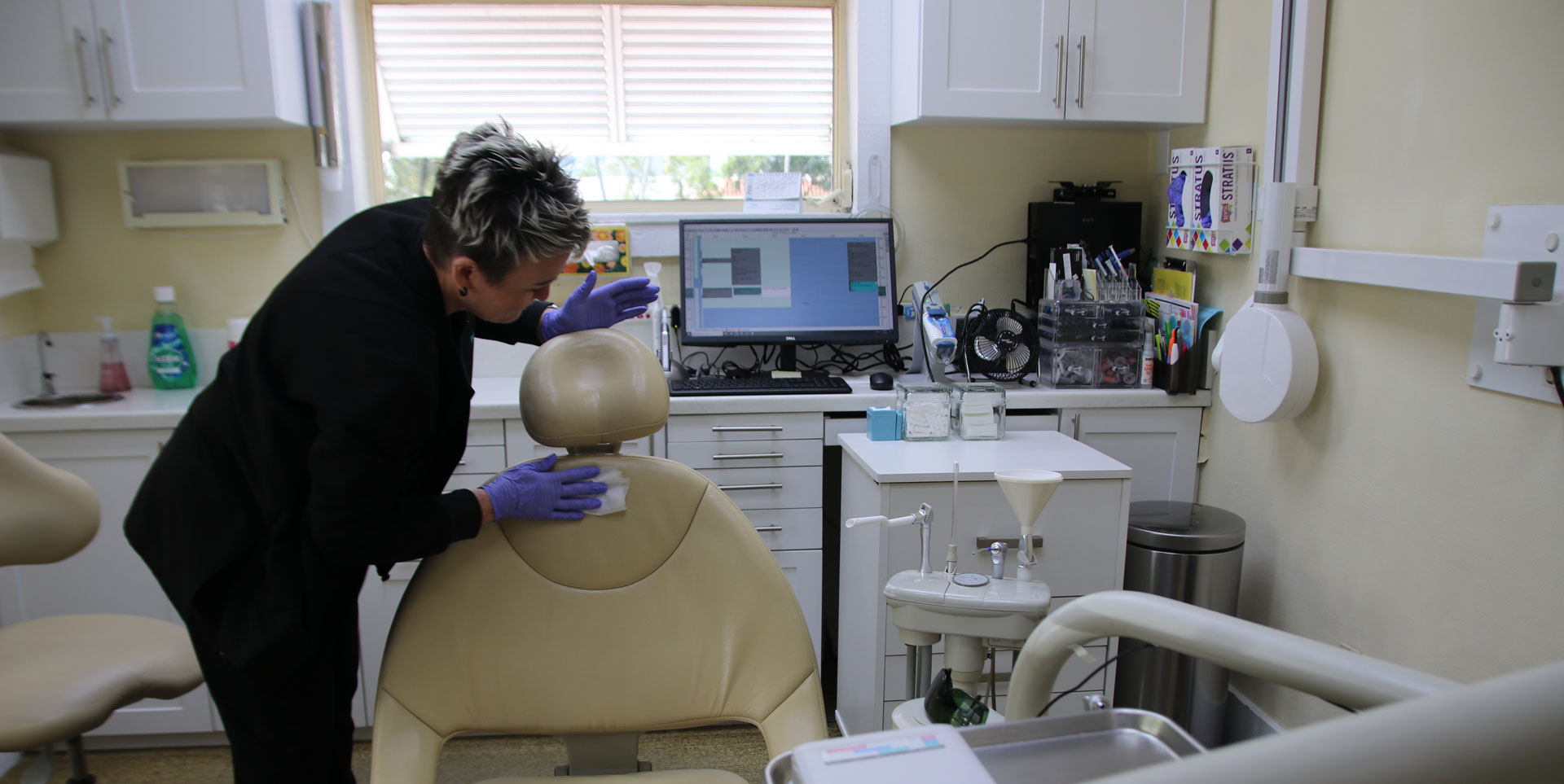Root canals are a dental procedure performed by a special type of dentist called an endodontist. The primary purpose is to clean the infection, fill the space, and seal it so the tooth remains intact and healthy for years to come.

What is A Root Canal?
Before diving into the procedure, it’s important to understand the anatomy of a tooth first. Under the visible white enamel and hard outer layer of a tooth, is the softer tissue called the tooth pulp. The pulp runs from the crown to the root of the tooth and it is vital during the development of teeth.
Sometimes the pulp and nerves at the root of the tooth can become infected and inflamed. During a root canal procedure, an endodontist will remove the infected pulp and nerve, then fill the now empty canal with a filling. The result is a preserved tooth with a crown designed to keep your tooth functional and protected.
Common Signs You Need A Root Canal
Though every dental situation is different, there are some tell-tale signs of infection at the root of the tooth. If you experience any of the following, it’s a good indication that a root canal may be the best treatment option.
- Tooth Pain or Aches
- Swollen Gums or Visible “Pimple”
- Sensitivity and Pain
Infections at the tooth root will cause pain and aching. If you experience pain when biting or severe aches that disrupt your daily functionality, bacteria may have spread from the root throughout the tooth, causing the nerves of your tooth to stay irritated.
Another common sign it may be time for root canals is visible swelling of the gums or a raised “pimple” appearing on your gums. As your body attempts to fight the infection spreading through your tooth, it will form pus. This is a sign of tooth abscess and you should seek root canal services.
Sensitivity and pain to hot or cold foods or drinks signals infection at the root as well. The reason the pain only occurs when it is exposed to hot or cold is because the nerve is triggered by the temperatures, thus causing some sensitivity and more often, pain.

What To Expect During A Root Canal
Root canals are a common and safe procedure. According to the American Association of Endodontists, around 15 million are performed each year, or 41,000 per day. Because they are common procedures, there are few reasons to fear this vital service, but it always helps to know the exact process.
Step One:
All the necessary imaging will be taken to examine your teeth. These images help the endodontist identify which tooth is infected, inflamed, abscessed, and/or decay. High-quality images also allow the team to see how far the cavity has extended, helping during step three. Once the culprit is identified, you’ll be given high-quality numbing agents to ensure the procedure is as pain-free as possible. Then, a rubber-like piece of material called a dam will be placed around the tooth to isolate it.
Step Two:
Our dental team will double-check that the area to be treated is numb and only when the area is completely numb will we make a small opening in the crown of the tooth. Specialized dental instruments are used to clean the infected tooth pulp from the root canal.
Step Three:
When the infected tooth pulp and areas of decay are removed, the space is cleaned and shaped using specialty files. A rubber-like material called gutta-percha is used to fill and seal the space, ensuring the root is completely and safely encased. Extra images will be taken to ensure the length and shape are correct.
Step Four:
In many cases, a temporary filling is placed at the opening of the crown to protect the newly filled root canal. If a temporary filling is placed, you will come back once the tooth has healed some for a crown fitting. However, in some cases, the root canal and remaining tooth is filled to provide the proper shape for seating the crown in the same appointment.
Step Five:
It is recommended that a tooth that has undergone a root canal is fitted with a dental crown. Without a protective crown, the tooth is at a high risk of cracking or breaking. Your options for crown fittings are presented during step one and a follow-up appointment will be made to place the crown. This is to allow the swelling from the root canal procedure to subside so the crown can be fitted precisely.
What To Expect After A Root Canal
Because we are a full-service dentistry office, we understand that every patient and every situation is different. We will provide personalized, detailed after care instructions before your appointment is concluded. However, generally, you can expect the following:
Since we only use high-quality numbing agents, you should expect the area to be numb for several hours afterward. It is important that you do not eat until the numbing medicines have worn off. Typically, feelings should return in about 2 hours.
In some cases, you will be prescribed antibiotics depening on the severity of the root canal infection or abscess.
Although we use numbing agents during the procedures, it is likely you will experience some discomfort afterward. Soreness and some swelling can occur. Per the instructions you receive at your appointment, you may take some over-the-counter medications to help. Warm salt water rinses can also be helpful. To make one, mix 1 teaspoon of salt with 8 ounces of warm water. Swish the saltwater for 1-2 minutes and then spit it out. You may also be prescribed an antiseptic mouthwash to use at home.


Signs To Look For After a Root Canal
Unfortunately, all dental procedures can carry some potential problem risks. Although they are very rare, it’s important to know what to look for, just in case. If you experience any of the following within two weeks after your procedure, call us immediately at 954-463-5051.
- Extreme swelling that spreads to your face, gums, or cheeks and doesn’t go down.
- Increased sensitivity that persists.
- Uncontrollable bleeding.
- Signs of infection such as fever, pus, or pain.
- Discoloration of the tooth.
Root Canal Services in Fort Lauderdale
At Eriks Dental Group Fort Lauderdale, we are proud to offer professional root canal services and a team of dental specialists who are compassionate, experienced, and trusted.
Schedule your appointment conveniently online or call our office at 954-463-5051.


